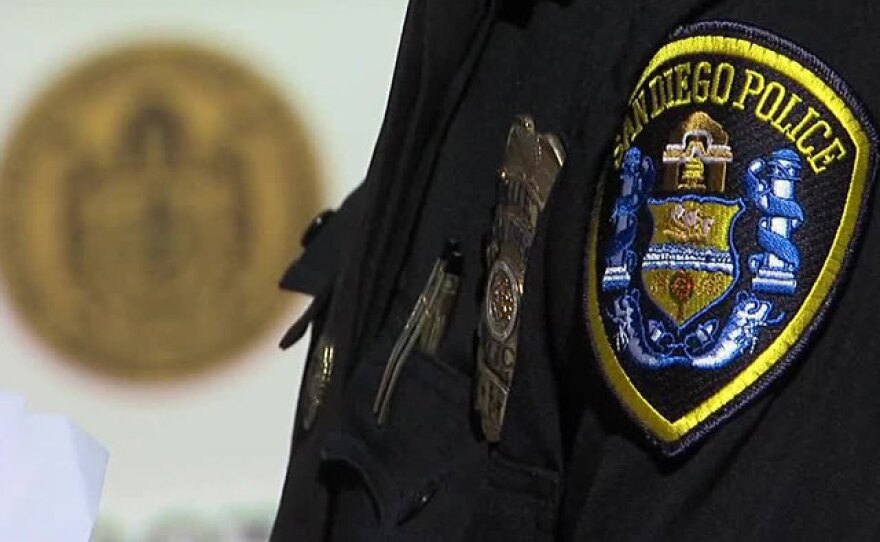Offering the best compensation of any law enforcement agency in the county would be a good first step toward resolving a persistent staffing problem in the San Diego Police Department, Chief Shelley Zimmerman said Wednesday.
RELATED: City Council Budget Committee Demands Mayor Fund National Search For New Police Chief
Her comments came at the beginning of a weeklong series of City Council hearings to sift through Mayor Kevin Faulconer's proposed $3.6 billion budget for the fiscal year that begins July 1. The meetings allow council members to take a department-by-department look at planned revenues and expenditures.
Council members have listed resolving the long-standing SDPD recruiting and retention issue as a top priority for several years now, and additional money has been appropriated in the past to increase officers' take-home pay.
RELATED: San Diego City Council To Tackle Police Staffing Problem
However, Zimmerman estimated that by the end of this fiscal year, the SDPD will suffer a net loss of 22 officers, wiping out small gains in the prior two years.
Just last week, she reported to a council committee that her department employed 207 fewer officers than called for in the budget, with officers leaving at a rate of 13 per month, figures that are worse than previous years. The number of applications submitted by prospective officers has fallen by 36 percent over the past two years, she said.
The staffing shortage's impact was made clear to the council members by a handful of La Jolla and Pacific Beach residents, who testified about long waits for officers to respond to the rising numbers of burglaries in their neighborhoods.
Zimmerman said attracting new officers has been difficult because of negative publicity brought about by high-profile shootings, and family members who dissuade job seekers from pursuing a career in law enforcement.
"One of the reasons why people do not join our police department, or they leave, is financial — pay and benefits ... And if we are the highest paid law enforcement professionals in our county, we will remove that element, and then we will continue to address those other issues, also," Zimmerman said.
A 169-page review of the proposed spending plan by the city's Independent Budget Analyst's Office noted that the SDPD's recruiting budget was maintained at $50,000 and does not fund requests by some council members to conduct a survey of current officers and engage an outside firm to develop a recruitment strategy. An update to a study of police salary levels in other cities was funded, according to the IBA.
The IBA review suggested that "new resources or approaches may be required to preserve police officer staffing levels in the coming fiscal year."
A short-term solution put forth by Brian Marvel, president of the San Diego Police Officers Association, is to use the department's overtime account to maintain minimum staffing levels. He agreed that raising pay was the long-term solution.
The City Council will examine all areas of the budget over the next week.
While the IBA report did not offer any major criticisms of the mayor's spending proposal, the council members were alerted to a handful of issues besides police staffing that were worth scrutiny:
–The city is falling behind on necessary expenditures to ensure compliance with stormwater permits, which total $3.1 billion through 2040.
–The budget cuts more than 20 library jobs that should not impact operating hours but could affect customer service and slow the reshelving of materials.
–Cutbacks in parks maintenance staff could reduce the frequency of grass mowing and pesticide application.
–The budget dropped two code enforcement officers at a time in which workloads are increasing.
–A 30 percent reduction in the habitat restoration budget could result in less frequent removal of non-native plants.
–The budget cut $882,000 in spending on tree-trimming.
The hearings are scheduled to run daily through Tuesday.
The City Council is also scheduled to host a special nighttime meeting on May 15 to collect public input from people unable to make it to City Hall during the day. The mayor will release revisions to the proposal, based on all the feedback, later this month.
The council is required by the City Charter to approve a spending plan by June 15.






